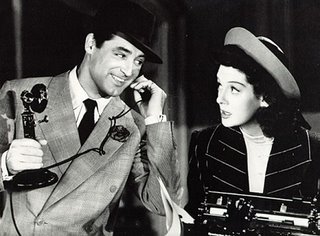Adventures in Babysitting

I’ve got a new job. I stopped working at competitive hellhole of book retail (at least at the corporate level), and have moved on to the somewhat glamorous world of nonprofits. I wanted to get out of “bottom line” thinking, and to move onto a position in which I felt like I was actually accomplishing something, rather than simply trying to survive from day to day without unloading a barrage of fury onto an unsuspecting Jane Austen fan. And so far, so good. I’m working with teens, helping them to start their own community organizations, and I’ve spent a lot of time meeting with groups of students and feeding their enthusiasm for leadership and change. And no, I’m not working for Barack Obama.
I came to this job knowing that I was good with kids. I knew how to talk to them, how to get them to come out of their shells, and how to be honest and sincere with them, and, I thought, how to be unafraid in their presence. I was confident that I could walk into a room of students and know exactly how to play them, and how to make things happen. I walked into a classroom this past week with this kind of coolness and bravado. And boy did I ever get schooled.
I should have known when I walked in that this was not going to be like other days, like other classes, or like other presentations. The yelling, the running-around, the loud laughter and somewhat controlled chaos – these are all signs that point to a situation that I can handle. But these kids weren’t just running around or yelling at each other across the room. They were quietly conspiratorial, deeply uninterested, and deviously unwilling to acknowledge my presence in front of them. They looked at me as if to say, “There is nothing that you will say that will make me respond.” Normally I view this kind of a situation as a challenge, and usually I find a way to get them engaged in some way. When this happens, my goals are simple: get them to look at you, get them to smile, get them to answer you back, and keep them from breaking you down. Hopefully, thing won’t get out of hand, and you won’t result to standing on chairs, shouting or turning off the lights in a vain attempt to keep them from cracking each other’s skulls open.
I had been warned that these students could become rowdy. Rowdy – that was the actual word used. I was expecting to have to crack jokes and be slightly sarcastic, showing them that I was understanding and not an out-of-touch disciplinarian. Mistake number one. The joking became a gateway to being laughed at, not with. The sarcasm was out of touch and dated – apparently I’m too old to be clever enough for a 13 year-old. I next tried to be individualistic, attentive and supportive. Mistake number two. That turned into a situation where the students who weren’t getting the attention trying to get attention with each other by throwing bits of paper and crayon at each other. Finally, I tried to be the disciplinarian, which was mistake number three. By this time, my credibility was shot and any discipline I tried to hand-out was met with bemused patronizing smiles. “Sure, we’ll calm down lady. Whatever you say.” The object-throwing escalated, the shouting escalated, the running around and teasing each other escalated. The lesson plan flew out the window, or it would have if it could have sprouted wings. I stood on a chair and tried to get their attention. No luck, and as a side effect, I became embroiled in a hostile stare-down with a student who wasn’t even in the class but came by to visit his friends. My shouting was drowned out by the high-pitched screaming of the girls and the stabbing laughter of the boys. And the lights – on or off, it made no difference. They kept on.
Then one boy fell and hurt his elbow. He was quiet, and had been the subject of a barrage of bullying and crayon bits. He tried to defend himself, throwing back while walking, and stumbled. He crashed to the ground, and the bullies cackled with insidious laughter. He was broken – still physically intact, but his reputation was irrevocably damaged. At least for the rest of the day. He tried not to cry, which only made the bullies more fiendish. I wanted to rush over to help him, but feared for his already fragile position within the clique system of the class. And the more the bullies laughed, the more I felt my cool core of self-confidence melt away.
I felt a pounding in my head and my chest, and I realized that something had started to crack and splinter. I felt that moment as powerfully as if I had fallen off the chair and fractured my skull. I had lost them, completely, and they knew it. I was completely powerless, and they knew it. I had nothing to give, nothing to say, nothing that I could do. I became useless and broken.
At the end of the period, the director of the program came to my class to work with the students on their class schedules. My responsibilities were over; she was in charge now. And I couldn’t have been more relieved to see her. When she came over to me, I wanted to tell her that things got a little rowdy –there’s that word again – but that it had gone well. I was happy with their progress, and I felt like we really connected. It would have been a lie, of course, but I would have felt better, and I wouldn’t have betrayed the students. But I didn’t say that. I confessed that the class was out of hand, that I was overwhelmed, and I was extremely disappointed in their behavior and careless disregard for me and their fellow classmates. Mistake number four. She was concerned, and listened carefully. And after they had discussed class changes, she lectured them. Disciplined them, and lectured how disappointed she was in them. And that’s when I broke. I thought they had broken me, broken my coolness, and shattered it like a million particles of ice on the sidewalk. But it was actually me. I had accepted defeat, and had even bought into the rationale that these were just bad kids. And that’s when I broke, when I stopped thinking about them in compassionate terms, and just worried about me.
I had to get out of there. I cleaned up the classroom, said goodbye to the program facilitators, watched the kids leave school to go back to homes, families, dinners, and younger siblings. I got on the subway and tried to read a magazine; I tried to act like it was nothing, like it was any other day. But sitting next to me, all around me, was my defeat and my resigned attitude. I had been broken down. I had disappointed myself, and let the students down. My bravado is gone, and my coolness dissolved. I need to build back up again.
I had thought that I knew a lot, that I knew how things worked. Nothing destroys that naïveté faster than a group of middle-schoolers. And now I am beginning to realize what it is that I need to do, what I need to know, and what kind of person I want to be the next time I have to work a class or any group of students. It takes much more than a knack with jokes and sarcasm. It takes a kind of passion and fearlessness that I have never had until now. It takes strength that one day, I want to have. I think, though, that this is why I’m doing what I’m doing. Kids are amazing; I will never lose faith in their power. But I need to restore the faith in myself.












